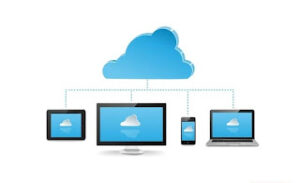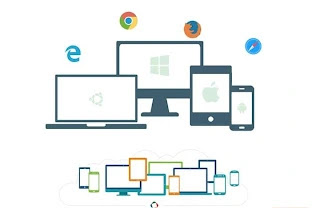We currently live in a digital world. In this era of digital transformation, trust is an important factor in our online operations. And this trust is discussed under the concept of ‘Digital Trust’.
Trust in the digital world is also essential for the Internet of the future. Because based on trust, Internet users will communicate and transact safely online in the future.
Internet has become a part of our daily life. We rely on the internet for socializing, entertainment or work. As the Internet grows, so does people’s anxieties about trusting the digital world.
‘Digital trust’ or trust in digital technology refers to users’ trust in the security, privacy and reliability of digital systems and services. As we become more accustomed to online life, the issue of trust is becoming more essential for the Internet of the future.
What trust means in the digital world
Digital trust or trust in the digital world refers to the user’s trust and confidence in the reliability, security and integrity of various online services, platforms and applications. Various technical measures like encryption, authentication and access control are part of digital trust.
Also, the trust of users towards the digital world is created by using various rules, procedures and processes together. This trust is essential to build and maintain proper transactional relationships between users and service providers.
How to build digital trust
Building this trust requires the kind of initiative that initiates technical and cultural change in the organization. That is why organizations working with digital technology have to use strict security measures.
And to do that, every part of the organization needs to have encryption, firewalls and intrusion detection systems in place. This will ensure the security of user data and prevent unauthorized access.
In addition, organizations should develop a transparent policy. and to store and manage users’ data in accordance with that policy. At the same time, employees should be regularly trained on data security.
Organizations need to ensure accountability for data usage. Users need to know what kind of data is being collected, how this data is being used and with whom it is being shared.
How does trust work in the digital world?
Trust in the digital world is built on 4 pillars. They are:
- safety
- Confidentiality
- dependency
- Accountability
Below is how these 4 pillars work.
1. Safety and reliability
Security is the most important part of trust in the digital world. Apart from using firewalls, encryption and multiple authentication methods, various security aspects are involved in this foundation.
Any digital service must be reliable and have no room for errors or delays. This requires an overhaul of the entire IT infrastructure and intensive testing.
2. Privacy and Control
Privacy is also another essential part. Users should be given the confidence that their data is secure and will not be shared with anyone else without their permission.
In the digital world, a creditor relationship continues between the consumer and the company. Consumers share their data with companies to tailor their online experience and ease service use.
Although the provision of data is with the consent of both, there are some limitations. If the consumer feels their data is not being used properly, companies can give the consumer control over when and how their data is used.
This increases consumer confidence in the company.
3. Transparency and access
Consumers expect companies to be transparent with them when using digital products and services. People can now access world wide information and inquire about preferred products and services at the touch of a finger.
They share their personal information with businesses. Therefore, companies dealing with digital technology should conduct their work with transparency and respond to consumers’ calls for any need.
4. Ethics and responsibility
There is no shortage of surprises in the digital world. But one thing to remember is that the morality of this world depends on the creator.
Businesses therefore need to understand what they want their technology to be used for, which will align with their core values. This is how companies can gain consumer trust.
Benefits of digital trust
Be it individuals or businesses, if you can build trust in the digital world, everyone benefits. In the case of an individual, personal information, bank information, medical information or information useful to identify the individual is safe and secure online.
In this way common people can easily do things like e-commerce, social networking and online learning online.
On the other hand, gaining this trust is very important for business organizations. Because it plays an important role in increasing customer trust, brand reputation and company revenue. Building trust can help keep company data secure and reduce the risk of cybercrime.
Otherwise the company’s normal operations and business reputation are likely to suffer.
The importance of trust in identity in the digital world
As we consume more and more services online, digital identification methods are becoming more important. In this regard, it is important to keep the information that people use online like usernames, passwords and biometric data safe.
And that’s why it’s so important to trust the company, so that users can confidently provide their information and have control over how that information is used.
Digital identity is also very important for various online services like banking and e-commerce. Besides, digital identity is now required to be used while submitting tax returns or creating ID cards.
Therefore, organizations need to implement a secure authentication system to build consumer and customer confidence in digital identity. Individuals should also be educated on protecting their digital identities, using strong passwords and not falling for phishing scams.
Trust is essential for innovation
Trust is also essential for innovation. Having confidence allows individuals and organizations to take risks to try new things. It can bring confidence to those who are hesitant to adopt new technology or services.
Without trust, innovation and progress can be stifled.
So trust plays a big role in new technologies. Examples include artificial intelligence and blockchain. These technologies can change our internet and society overnight.
However, to make these technologies popular among users, they need to instill confidence in their minds that users’ data is being used ethically. Users need to instill confidence in how reliable and secure a system is.
As blockchain technology is completely based on trust. Without trust, users will never agree to use blockchain networks, especially when the technology is used in large sectors such as supply chain management or healthcare.
Emergence of Internet of Things (IoT).
The ‘Internet of Things’ (IoT for short) is a network of devices that can communicate with each other over the Internet. The more parts are added to this network, the more important the issue of digital trust becomes.
Through the Internet of Things, we are entering a world where everything from cars or home security systems to everyday appliances are connected to the Internet.
So protecting the security and privacy of these devices is very important.
As the use of the Internet of Things increases, the threat of serious security risks will increase. Because many small components are not effective against cyber attacks. Criminals can use these devices to access other systems.
To meet such challenges, technology companies need to strengthen security on IoT devices. At the same time, it must be ensured that users can trust these devices.
The future of trust in the digital world
As we move into the future, trust will become more important in the digital world. Especially with the expansion of the Internet of Things, many more new devices will collect our data and data will be shared through those devices.
As a result, the issue of trust will become more necessary in the future. In addition, due to the use of artificial intelligence and machine learning, it is necessary to ensure that these technologies are used in an ethical and transparent manner.
Digital trust is essential for the Internet of the future. This is the foundation of staying safe and secure online. And as a result of this, in the future, people will be able to conduct business online easily.
To increase digital trust, companies must work to improve their security, credibility, privacy and accountability, and proactively combat cybercrime. As we move into the future, digital trust will become more important. Then the companies which prioritize this matter, they will be able to achieve success.
DigitalTrust, Internet, Future





